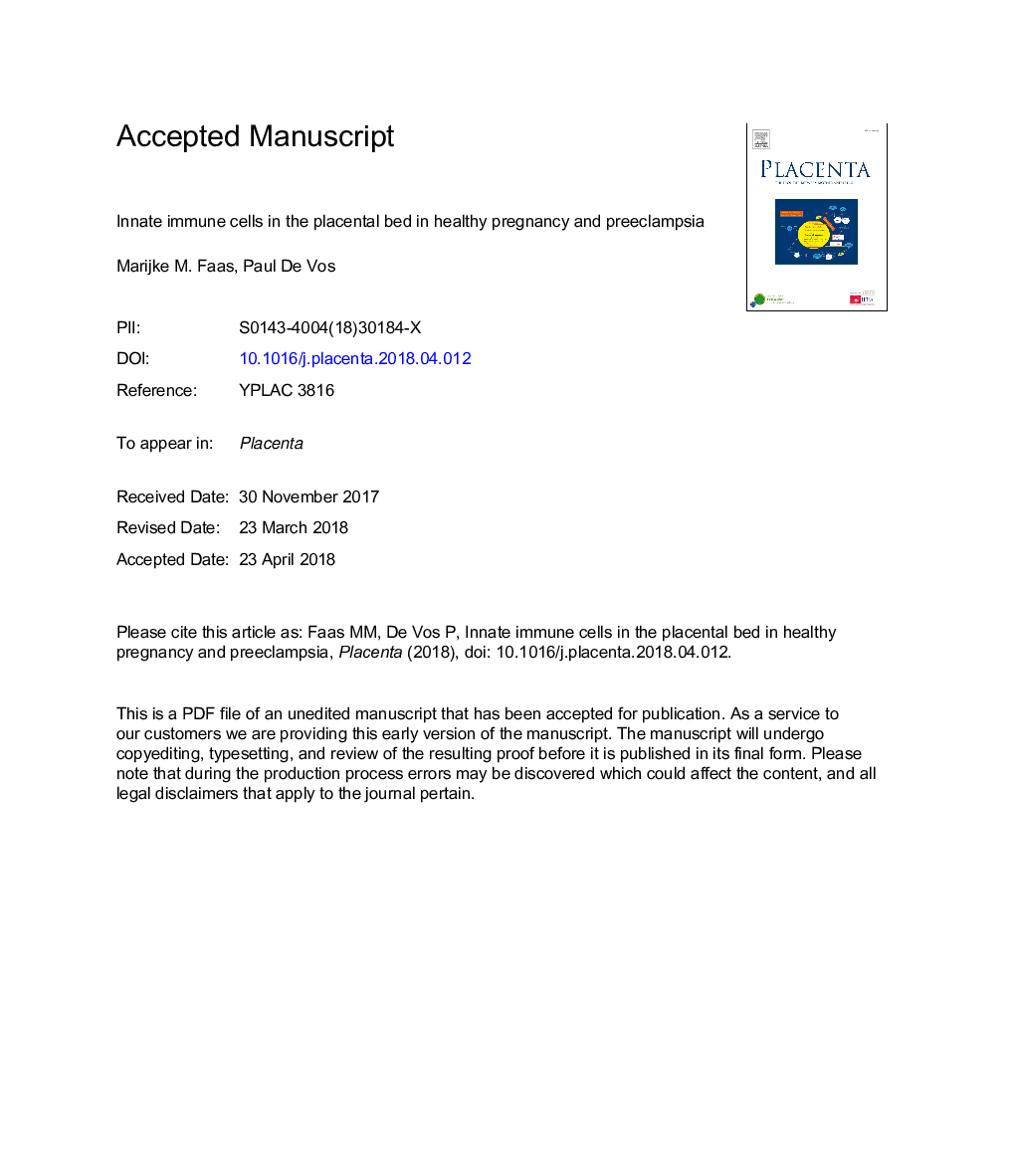| Article ID | Journal | Published Year | Pages | File Type |
|---|---|---|---|---|
| 9955262 | Placenta | 2018 | 28 Pages |
Abstract
Immune cells in the placental bed are important for adequate development of the placental bed. The most prominent immune cells in the placental bed early in pregnancy are uterine natural killer cells (uNK) cells and macrophages. Also dendritic cells and mast cells can be found in the early placental bed. These cells not only have an immune regulatory function, but are also involved in the regulation of trophoblast invasion, angiogenesis and spiral artery remodeling. In preeclampsia, one of the major complications of pregnancy, decreased trophoblast invasion and spiral artery remodeling has been found. This is associated with decreased numbers of uNK cells, increased numbers of macrophages around the spiral arteries and similar or increased numbers of dendritic cells in the placental bed. In this review, we discuss the current insights in the functions of uNK cells, macrophages, dendritic cells and mast cells in the placental bed in humans during healthy pregnancy and during preeclampsia. As animal models are instrumental in understanding the role of immune cells in the placental bed, we also review studies on the function and phenotype of these innate immune cells in experimental preeclampsia. A better understanding of the dynamics and functional changes of these immune cells in the placental bed may eventually lead to new therapeutic targets for preeclampsia.
Related Topics
Life Sciences
Biochemistry, Genetics and Molecular Biology
Developmental Biology
Authors
Marijke M. Faas, Paul De Vos,
